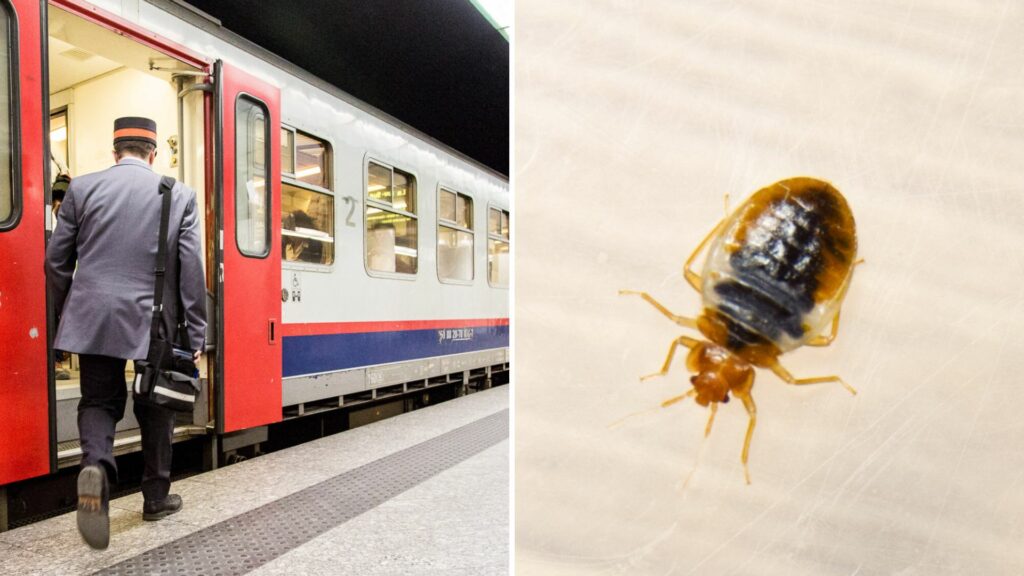With reports of bedbugs on the rise across Europe, and treatments of cases up by a third in Belgium compared to last year, the national railway company is being extra vigilant and increasing cleaning measures on its trains.
Last week, Flemish doctors sounded the alarm as bedbugs following widespread reports across Flanders, and suspicions that the "scourge" was moving to Belgium from the French capital via public transport.
In addition to Transport for London and Eurostar announcing preventative measures, Belgian national railway company SNCB declared on Wednesday that it is currently being extra vigilant for bedbugs due to Paris' infestation, and that all 800 cleaning staff have been briefed on what to do if bedbugs are found.
"Firstly, the train is immediately taken out of commercial service," SNCB spokesperson Dimitri Temmerman told Het Laaste Nieuws (HLN). "Then, on top of the usual cleaning, it is vacuumed, steamed or treated with insecticide if necessary. For larger infestations, we call in specialised teams." At the moment, no trains have been taken out of service for this reason.
Brussels transport company STIB, meanwhile, is less concerned about infestations. Bedbugs usually hide in beds, luggage and clothing, but almost all STIB vehicles have leather, semi-leather or plastic seats on which bedbugs do not nestle, confirmed STIB spokesperson An Van hamme. "The older tram vehicles with cloth seats are steamed every 30,000 km, in addition to daily cleaning."
Bedbug treatments boom
Pest control company, Rentokill Belgium, is also stepping up disinfection operations in private homes as well as in hotels, nursing homes and prisons across the country.
"Our work this summer is up by 30% compared to last summer," the company's marketing manager, Dominique Debie, told La Capitale. "What's also exceptional is that the season isn't over yet. Usually, the high season coincides with the summer holidays and travel, and ends around mid-September, but here the calls are continuing at a steady pace, and it's now 9 October!"
Related News
- Bedbug hysteria: Belgian doctors sound the alarm
- Belgium in Brief: The pests that love to travel as much as we do
- 'Growing problem': French bedbug infestation spreads to Belgium
Debie stressed that, unlike in the past, calls for treatments are now not only coming from private individuals, but also from hotels, nursing homes and prisons.
"The bites and itching caused by a bedbug are very similar to those of a flea, but the treatment is not the same. As bedbugs are becoming increasingly resistant to the pesticides sold in supermarkets, it is best to call in a professional," she noted.
"It is difficult to estimate prices because each case is different. Even in a small room, the operation can be time-consuming because we have to treat the slightest crack or crevice between the floorboards... Bedbugs can even hide in sockets!"
'Not disease spreaders'
Despite the growing cases and hysteria, the Flemish Health Ministry maintains that the parasites are not a public health problem.
"They are pests, but not disease spreaders," clarified government spokesperson Joris Moonens to HLN. "So we are not taking any measures at the moment."
General practitioners in Antwerp nevertheless sounded the alarm last week, denouncing the government's inaction regarding the parasite's rapid rise across the region. "Governments say that there is no danger to public health, but we must not wait until it is too late," they said, as the bloodsuckers can "spread to public spaces before you know it."

